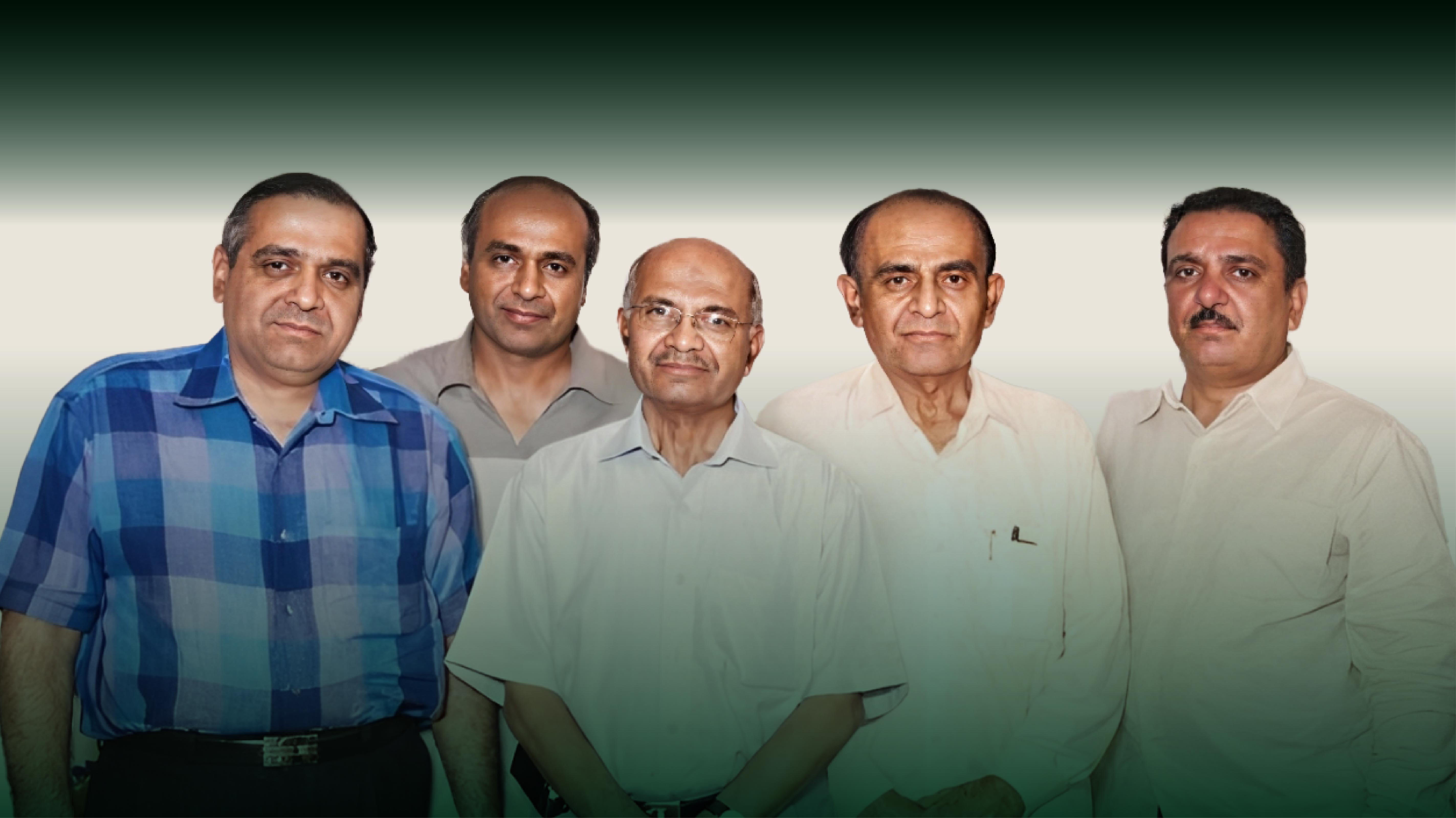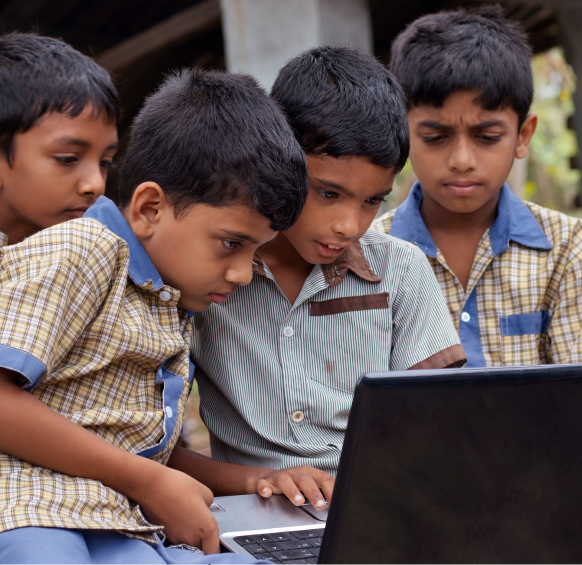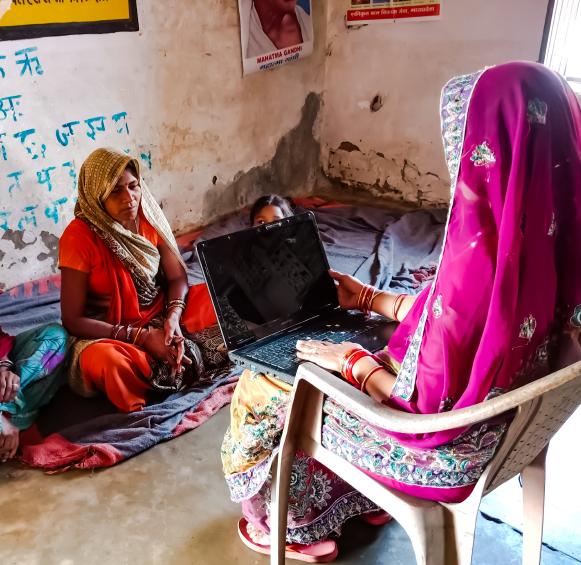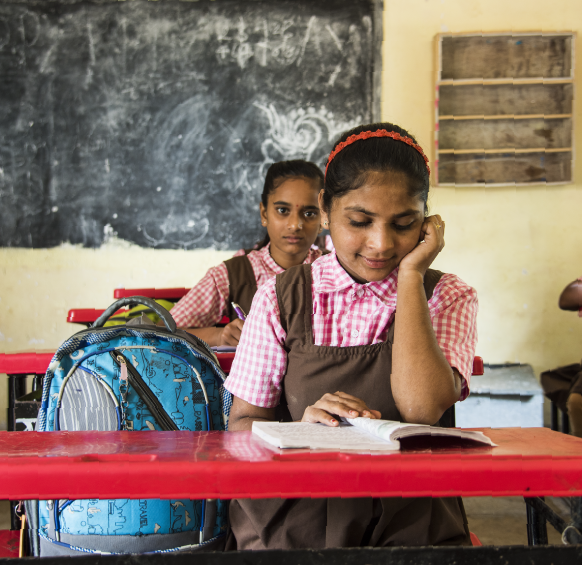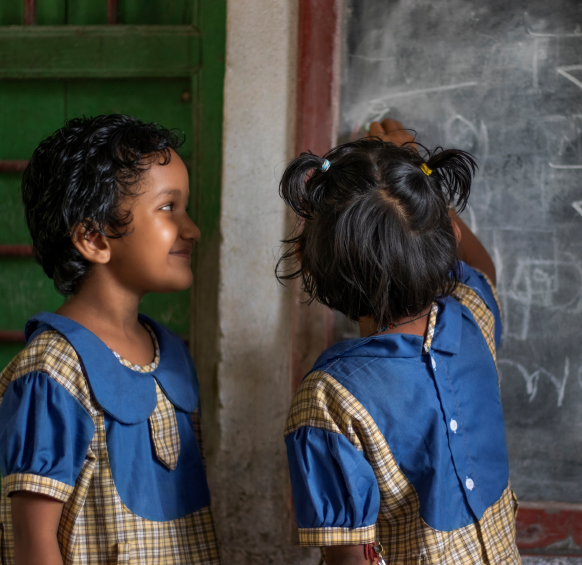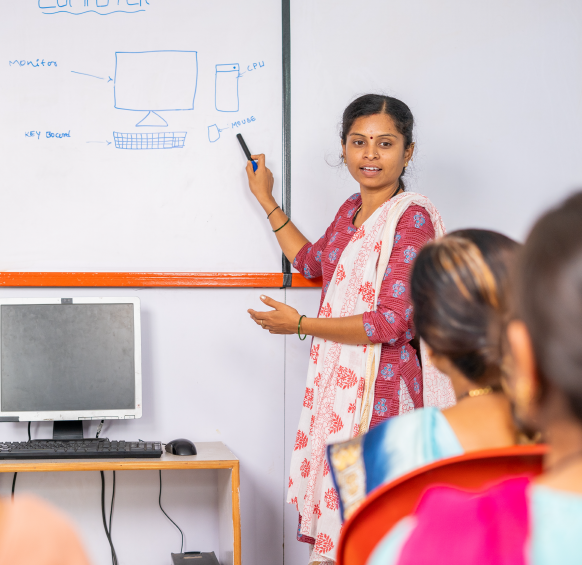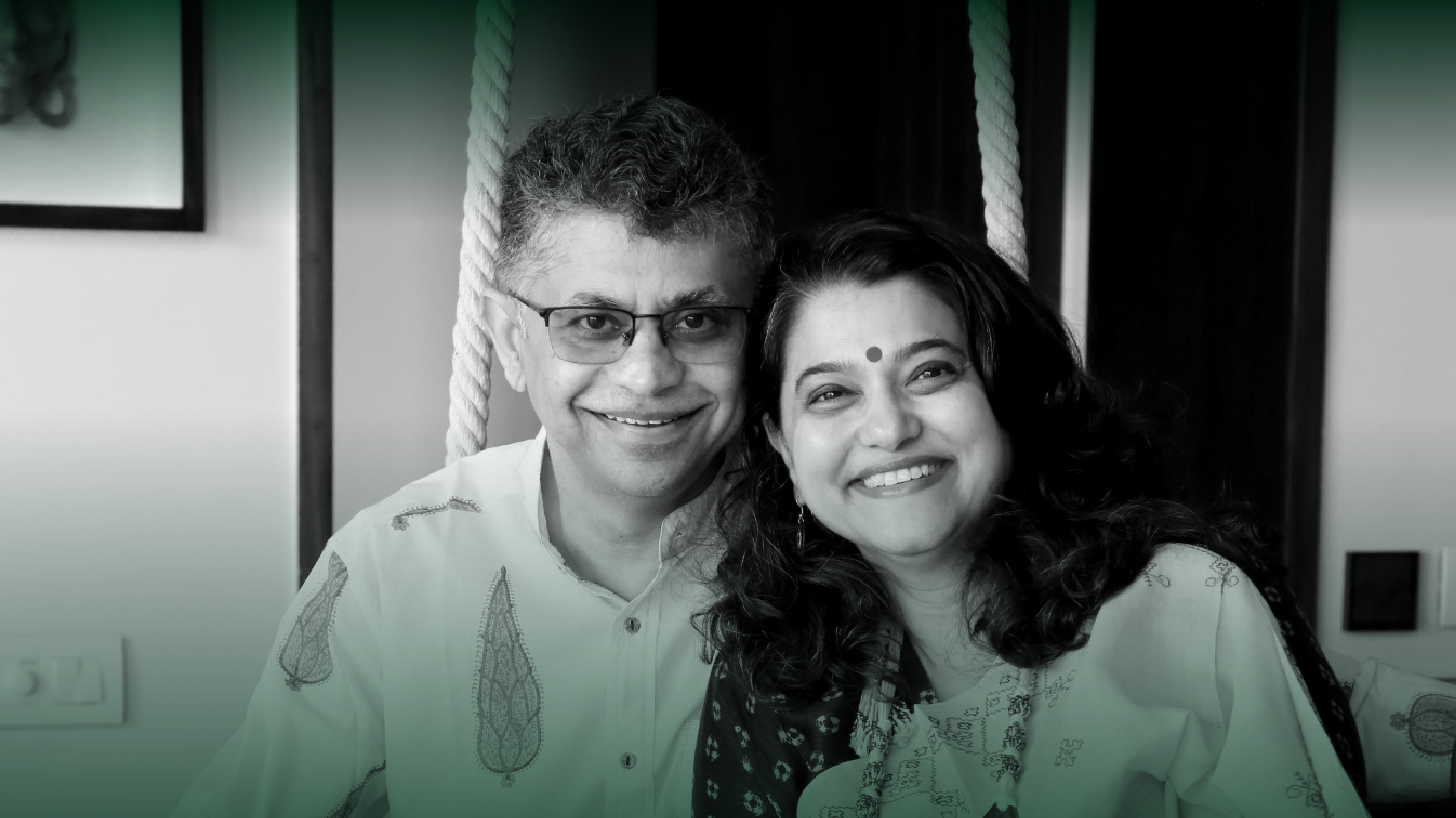Empowering NGOs to Scale: The Fusion of Technology and Philanthropy
When people resolve to pledge part of their wealth for impact, they typically ask themselves how much of it they want to give, and how soon they want to give it. Rekha Koita asked herself a different question: Beyond their wealth, how could she contribute her skills to serve the greater good?
Rekha and her husband, Rizwan, recognized that solely funding charitable initiatives wasn't aligned with their vision of philanthropy, stating, "While there are instances where writing a cheque is essential, we were driven by the aspiration to leverage our skills and knowledge to make a meaningful difference within the social sector."
Philanthropic Ethos
Pooling their collective wealth was just the beginning for the Koitas; what held paramount significance was their professional acumen, honed through years of fostering and shaping businesses around technology and digital solutions. Their approach was distinct: they aimed to extend their entrepreneurial and managerial skills, cultivated through establishing CitiusTech, the health-tech venture co-founded by Rizwan, and Rekha's consultancy with blue-chip corporations, into the realm of NGOs. In essence, they viewed technology not as a one-size-fits-all solution, but rather as a catalyst that, when combined with strategic thinking and thoughtful execution, could elevate NGOs' operational efficiency and self-sufficiency.
With this ethos, the couple set up Koita Foundation in 2016. Both funder and facilitator, the foundation embarked on a mission to empower NGOs with a digital transformation strategy that addressed three fundamental pillars —scale, impact, and productivity. Reflecting on her prior experience leading large-scale IT transformation initiatives in corporate settings, Rekha emphasizes, "It struck me that the social sector might actually require technology even more. This becomes exponentially crucial because resources are often scarce in this sector. NGOs need robust, user-friendly technology and substantial guidance. But who is catering to these needs?"
It was a natural fit for the Koitas, who had a keen understanding of the transformative potential of technology. Rekha and Rizwan, thus, embarked on their organized philanthropic journey, guided by Dasra, which led them to Antarang Foundation—a non-profit dedicated to livelihoods and career building.
Rekha's journey in particular was marked by a learning curve woven with lived experience, initially focusing on individual projects to refine and streamline their approach. This allowed them to fine-tune and optimize their strategies. As these initiatives flourished and showcased tangible results, the Koitas extended their support to other NGOs such as SNEHA and Magic Bus. Through these experiences, a glaring reality became evident: the social sector grappled with significant operational and data-related gaps that technology could seamlessly bridge.
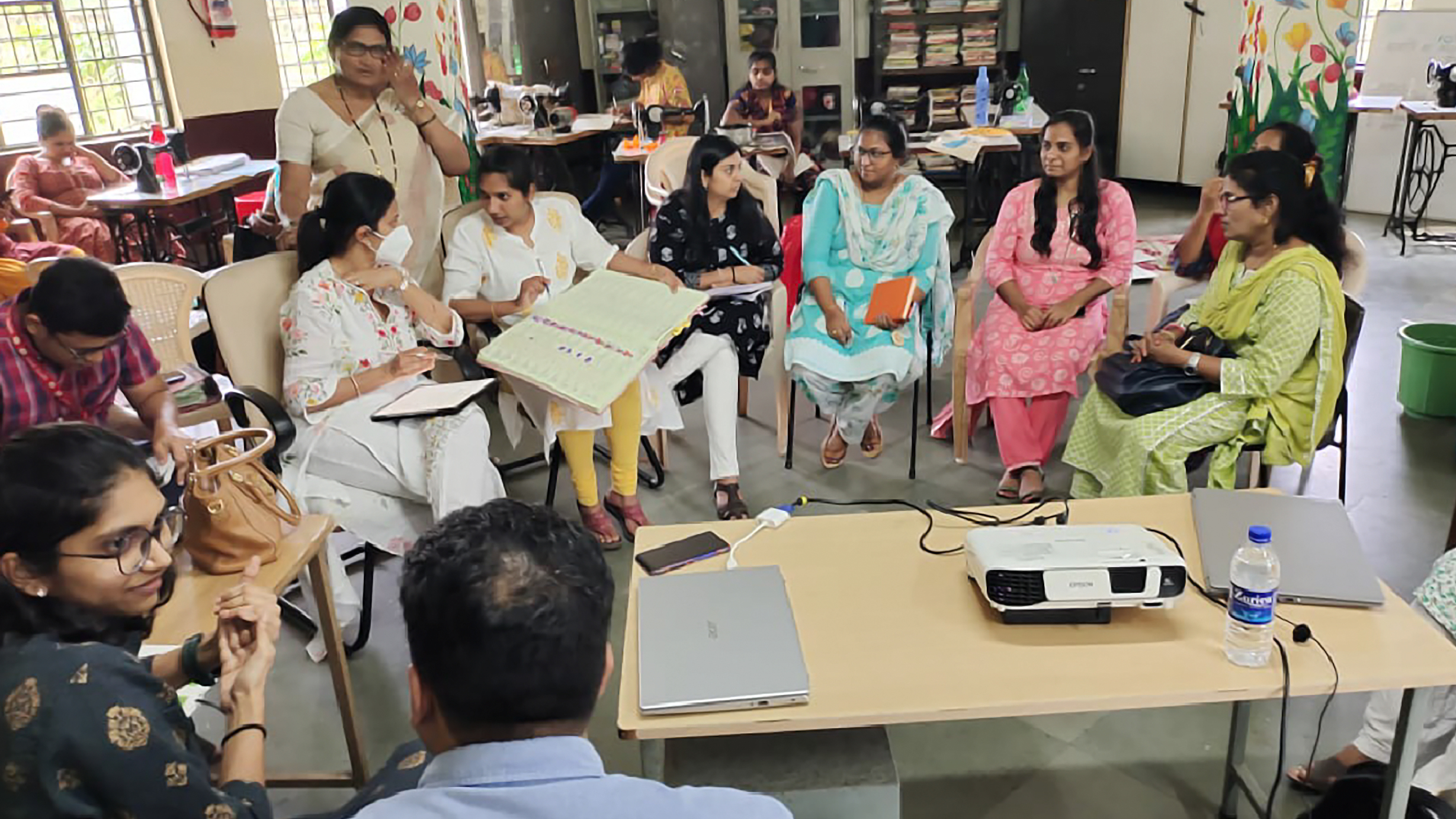
Rekha Koita in conversation with community members supported by Koita Foundation
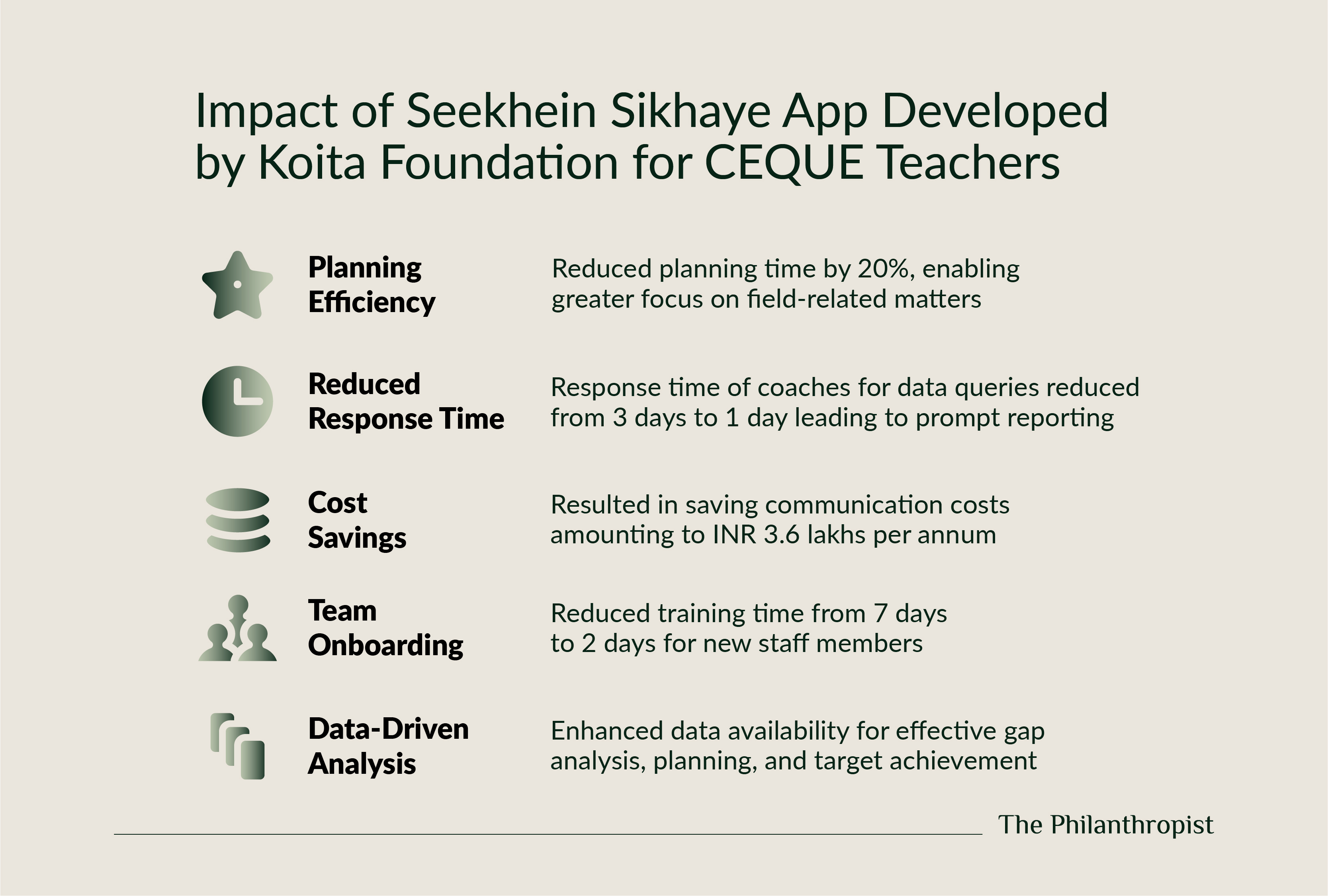
Impact snapshot | Koita Foundation's work with CEQUE
Harnessing Tech for Transformation
The challenges they encountered with NGOs included complex operations, semi-skilled and semi-literate workforce and volunteers, inadequate monitoring systems, insufficient data management practices, and, in many instances, a lack of effective IT infrastructure to support NGO operations. It wasn't that NGOs were oblivious to the potential advantages offered by technology; rather, they often grappled with the practicalities of establishing the necessary framework.
"I came across numerous organizations that had attempted to embark on the path of digital transformation but faced obstacles. A significant contributing factor was their limited capacity to establish a robust tech team, and developing this expertise internally proved to be quite challenging," reflects Rekha on her interactions.
This predicament was further exacerbated by limited financial resources. While donors were frequently willing to support specific programs, they were often hesitant to allocate funds for the technology required to enhance and amplify the impact of these programs (often seen as administrative expenses). In contrast, Rekha and Rizwan held a different perspective. They saw technology not as an extraneous cost, but as a strategic investment intimately connected to program effectiveness—a catalyst that could trigger a cascade of improvements across operations. Technology could therefore be leveraged to optimize efficiency, thus enabling greater scalability and impact of NGO interventions. This heightened efficiency not only empowers the NGO to provide higher-quality services to its communities, but also strengthens its value proposition to potential donors, he emphasizes.
A notable instance of this approach is evident in the case of Antarang Foundation’s endeavor to bridge the employability gap for disadvantaged youth. With Koita Foundation's support, Antarang's Career Awareness program achieved an impressive tenfold operational scale increase in just one year. Through a Salesforce-powered career planning platform, Antarang expanded its reach to 32,000 students nationwide, a significant leap from its previous annual coverage of 3,000 students. Priya Agrawal, Founder and Director at Antarang Foundation highlights, “Rekha and Rizwan met us in 2016, when we introduced the concept of personalised career awareness and readiness to students from disadvantaged communities. We knew we could customise our instruction and career linkages better. The Koita Foundation helped us set up our entire data collection and analytics in a manner that could help the team enable informed career transitions for over 1,85,000 students.”
Koita Foundation's impact extends to the Teacher Innovator Program at CEQUE (Centre for Equity and Quality in Universal Education) as well, where they developed the Seekhein Sikhaye App. This app has simplified the planning and data capture process for teacher trainers working in rural schools. By optimizing route planning and offline data entry, the app has significantly enhanced operational efficiency. Uma Kogekar, CEO at CEQUE, highlights the impact stating, "Our teacher trainers now use the app to study routes before school visits, streamlining our fieldwork process. These seemingly small adjustments have resulted in a larger shift towards improved planning and efficiency.” Uma credits the Koitas, who helped her map out the NGO’s challenges and design relevant solutions for it. “They are collaborators, not just funders,” she says appreciatively of them.
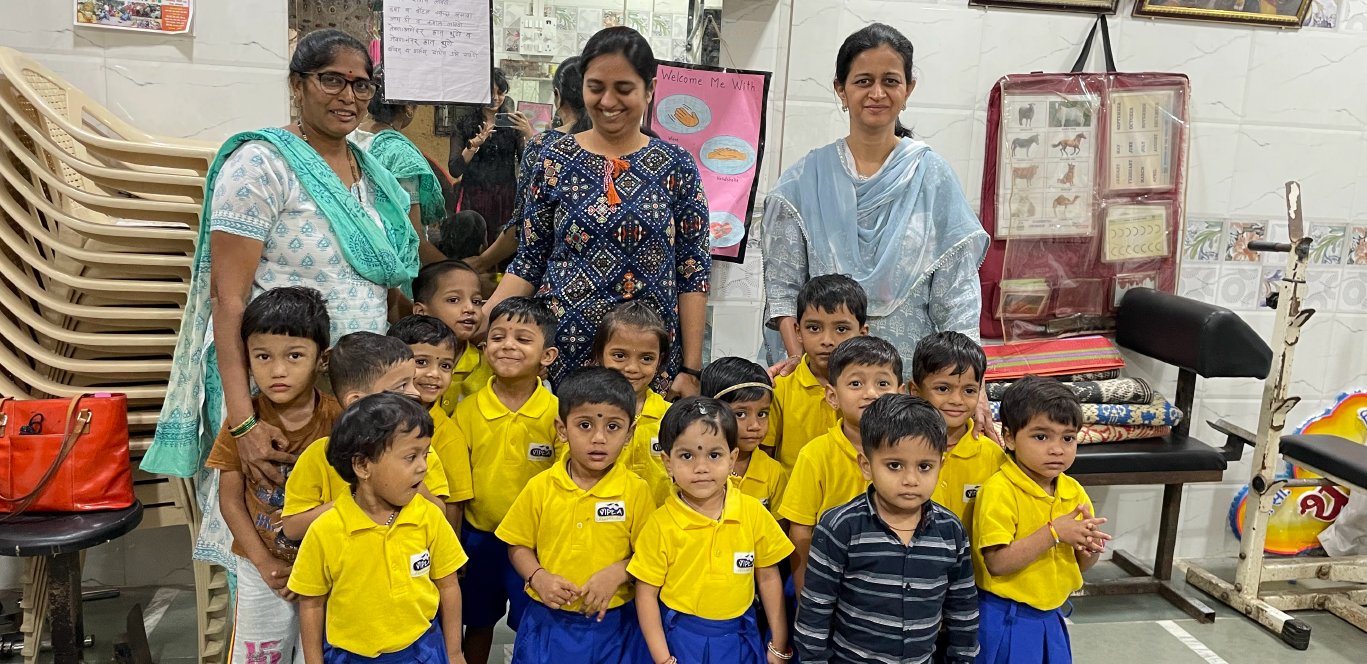
Rekha Koita alongside educators and school children in a classroom
Navigating through Challenges
Koita Foundation's role in assisting non-profits to leverage their data, streamline operations, and achieve growth has positioned it as a valued collaborator. Yet, the process of choosing partners presents a challenge. Rekha elaborates, “Our biggest challenge is finding the right NGO, one that exhibits a well-defined on-ground vision under the leadership of its CEO, coupled with a sincere commitment to scalability.” Rizwan adds, “In software development, knowing what you want to build is 50% of the work.”In instances where a suitable initiative isn't discovered within a particular year, they exercise patience. "Chasing numbers serves no purpose," remarks Rizwan. Yet, upon forging an alliance, the foundation delves deeply into the NGO's operations, engaging in multiple field visits to grasp the realities on the ground. Rekha asserts that it's this proximity to projects that makes these partnerships a success.
Guided by a drive for optimization, the Koitas have honed a pragmatic approach to reduce application development costs while heightening success rates—they opt to clone and adapt applications instead of building anew each time. This allows NGOs that enter the foundation’s pipeline at a later stage to benefit from a tried-and-tested formula and the lessons learnt from it. “It also accelerates building of the next set of tools,” Rizwan says.
Aspirations for the Future
Koitas' journey has been a learning experience that extends beyond technical insights. In sharing their learnings, they emphasize the value of holistic contribution, where time, expertise, and guidance are equally essential alongside financial support. Rekha underscores the importance of fostering connections, stating, “Providing NGOs with connections is paramount.”
Their own path has revealed the potency of depth over breadth. Rizwan reflects, "Long-term commitment to a specific cause nurtures impact," highlighting the importance of knowing when to say ‘no’ to initiatives that can steer you off-path. He further highlights the unique challenge within India's landscape, where a staggering 3.2 million NGOs often operate below their potential.
As we march towards India@100, conquering these hurdles necessitates a savvy adoption of technology, akin to thriving businesses. This isn't just about overcoming obstacles—it's about achieving unparalleled scale and impact, shaping a future India that resonates with our highest aspirations.
Inspired thinking presented by

YOU MAY ALSO LIKE
